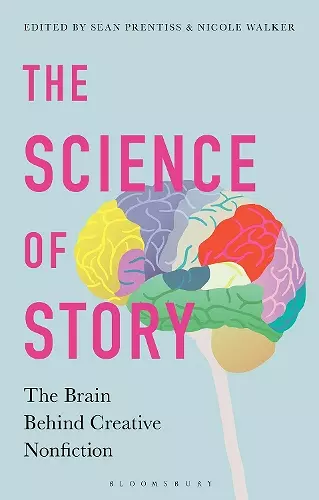The Science of Story
The Brain Behind Creative Nonfiction
Dr Nicole Walker editor Dr Sean Prentiss editor
Format:Hardback
Publisher:Bloomsbury Publishing PLC
Published:9th Jan '20
Currently unavailable, and unfortunately no date known when it will be back

Brings together a diverse group of prolific and award-winning writers to ask how contemporary brain science can shed new light on the art and craft of creative nonfiction writing.
Bringing together a diverse range of writers, The Science of Story is the first book to ask the question: what can contemporary brain science teach us about the art and craft of creative nonfiction writing? Drawing on the latest developments in cognitive neuroscience the book sheds new light on some of the most important elements of the writer’s craft, from perspective and truth to emotion and metaphor.
The Science of Story explores such questions as:
· Why do humans tell stories?
· How do we remember and misremember our lives - and what does this mean for storytelling?
· What is the value of writing about trauma?
· How do stories make us laugh, or cry, make us angry or triumphant?
Contributors: Nancer Ballard, Mike Branch, Frank Bures, J.T. Bushnell, Katharine Coles, Christopher Cokinos, Alison Hawthorne Deming, David Lazar, Lawrence Lenhart, Alan Lightman, Dave Madden, Jessica Hendry Nelson, Richard Powers, Sean Prentiss, Julie Wittes Schlack, Valerie Sweeney Prince, Ira Sukrungruang, Nicole Walker, Wendy S. Walters, Marco Wilkinson, Amy Wright.
This book offers intriguing takes on the question of how our unknowable brains reckon with experience and lead us to the artistic practice of creative nonfiction. Cognitive science, neuroaesthetics, mirror neurons, memory and metaphor all come out to play with these inquiring minds. This is not an instruction manual, but rather a series of brilliant provocations to expand the field of our writing lives. * Alison Hawthorne Deming, Author of Zoologies: On Animals and the Human Spirit *
The Science of Story makes a great case for the essay as premier scientific instrument. Each contribution in this anthology illuminates a new intersection between writing and science. How does time or space work in memory or on the page? How do description and emotion affect us? How do memory or metaphor work to produce the magic they do? How do the essays we love affect us emotionally? And more importantly, how can writers use or repurpose these tools to make more interesting and beautiful things? This book will be revelatory for writers of nonfiction and their many readers. * Ander Monson, Professor of English, University of Arizona, USA *
ISBN: 9781350083882
Dimensions: unknown
Weight: 440g
256 pages